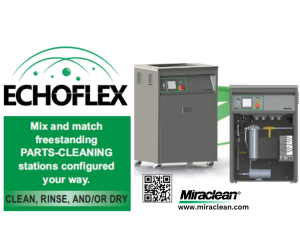Successful Succession
Two reader scenarios illustrate the dos and don'ts of estate planning.
Two phone calls—in the same week—from readers of this column rang my "it's-time-to-write-a-succession-planning-article" bell.
Two phone calls—in the same week—from readers of this column rang my "it's-time-to-write-a-succession-planning-article" bell. The first call was a succession planning horror story. The caller unnecessarily lost millions to the IRS. The second call made me want to explode. It was another "spent-a-lot-of-money-on-lawyers-and-still-don't-know-what-to-do" tax tragedy.
Let's spell out the succession problems of each call and the surprisingly simple solutions in both cases.
The first caller, Joe, sold his business, Success Co., to his two sons four years ago for $3 million, payable over eight years, plus interest at 5.25% on the unpaid balance. Today the balance due is $1.4 million.
Let's assess the tax damage to Joe and his sons. The boys are in a 40% tax bracket. To have $1 million after-tax to pay their dad, they must earn $1.66 million, then pay $660,000 in income tax. Since the price is $3 million, the income tax burden to the boys will be $1,980,000.
How will Joe be taxed? Well, the tax basis for his Success Co. stock was $287,000 (let's round it to $300,000). So, Joe's capital gain over the eight years will be $2.7 million ($3 million less $300,000). What's his capital gains tax? A mere $405,000 ($2.7 million x 15%).
Can you believe this tragic tax picture? The boys must make $4,980,000, while the family gets eaten alive by a total tax burden of $2,385,000.
Now, the $2,385,000 question: Is there some way that Joe and the boys could have avoided that $2,385,000 tax? The answer is a resounding YES!
How? Joe should have transferred the stock to his sons using an intentionally defective trust (IDT). Joe sells the Success Co. stock to the IDT for a $3 million note. The cash flow of Success Co. is used to pay the note, plus interest. When the note is paid, the trustee distributes the stock to the beneficiaries. The boys don't pay even one penny in taxes for the stock. Because an IDT is intentionally defective for income tax purposes, Joe receives the entire $3 million plus interest tax-free—not one cent in capital gains tax or income tax. The tax savings are $2,385,000, as explained above, and the transaction is structured so that Joe keeps control of Success Co. until the day he dies, or until paid in full—his choice.
My Advice: Want to sell your closely held business stock to your kids? Look into an IDT.
Now, let's take a look at the second caller's succession problem. Sam owns 10% of Good Co. He is one of 10 stockholders (I nicknamed them the "Big Ten"), each owning 10% of Good Co. All are children of four brothers who started the business years ago.
The Big Ten are all in their 50s, healthy and each has one or more kids. Three already have one or more of their kids in the business. Three know for sure that none of their kids will work for Good Co, and it's a maybe for the remaining four.
What do they do about a succession plan for Good Co.? Everybody, including the many professional advisors the Big Ten have consulted, is stumped.
All you family-owned businesses that have two or more stockholders, listen up. Following is the basic succession plan that we create when there are multiple shareholders: 1) Each shareholder is treated as owning 100% of his 10% of the company stock, and is given the freedom to deal with the stock he owns, as long as it does not interfere with the operation of the company or the other shareholders.
For example, Sam has a son who is already working for Good Co. Sam will continue to work for Good Co. He can sell (probably using an IDT), gift or leave his stock to his son when he dies. The point is that Sam should not be forced by the Good Co. buy/sell agreement to sell his stock to the company or his fellow stockholders when he retires or dies.
2) Those shareholders who have no children working at Good Co. would be a party to a buy/sell agreement, which is insurance funded. Each time one of the Big Ten dies, the policy death benefit would be used to buy the deceased's stock.
3) What happens when a shareholder with no kids in business now has kids join the Good Co. work force? Then he is no longer subject to the terms of the buy/sell agreement, and (if he wants to) can buy his insurance policy from the company for its cash surrender value.
I know, I know! Your question is about your specific succession problem. It would take a large book to cover every possible situation. But, in practice, the information from these two callers will solve about 98% of the succession problems I have seen over the past 40 years.
Related Content
40 Under 40: Class of 2023
Products Finishing's 40 under 40 program recognizes nominated individuals driving the surface industry forward. Meet the class of 2023.
Read MoreDefining a Top Shop: Quality, Quickness, Communication, Community
Luke Engineering & Anodizing Co. takes an active role in its community and the industry while also focusing heavily on the quality of its work and employee treatment.
Read MoreBeware the Employee Freeloader
Clearly communicate expectations, set goals, measure performance and trust your instincts.
Read MoreHohman Plating Expands Facility
Hohman Plating is expanding its facilities in a $12.5 million project.
Read MoreRead Next
Delivering Increased Benefits to Greenhouse Films
Baystar's Borstar technology is helping customers deliver better, more reliable production methods to greenhouse agriculture.
Read MoreEducation Bringing Cleaning to Machining
Debuting new speakers and cleaning technology content during this half-day workshop co-located with IMTS 2024.
Read MoreA ‘Clean’ Agenda Offers Unique Presentations in Chicago
The 2024 Parts Cleaning Conference, co-located with the International Manufacturing Technology Show, includes presentations by several speakers who are new to the conference and topics that have not been covered in past editions of this event.
Read More











.jpg;maxWidth=300;quality=90)










